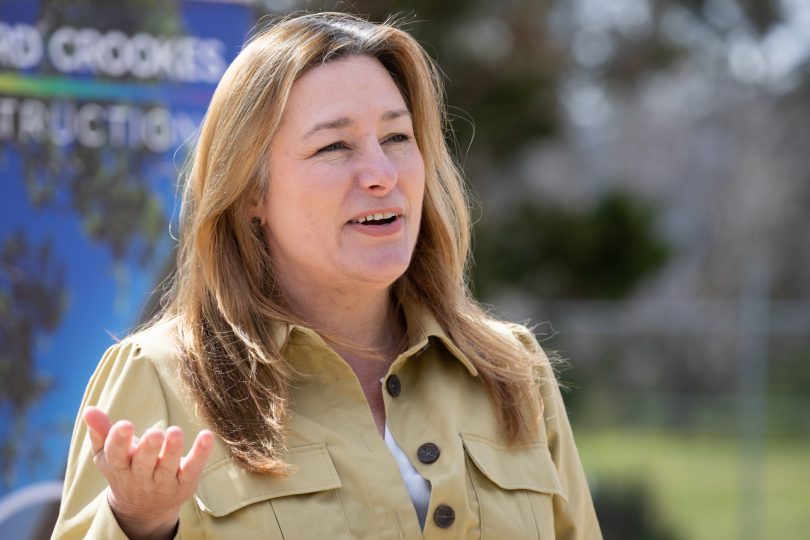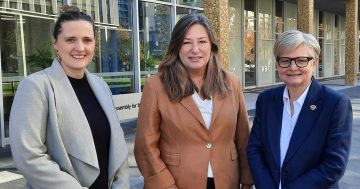
Minister for Education Yvette Berry says the independent inquiry will also cover numeracy. Photo: Michelle Kroll.
Government support for an independent inquiry into literacy, expanded to include numeracy, is long overdue and welcome.
For too long, Education Minister Yvette Berry has instinctively gone into bat for ACT public schools, the Education Directorate and teachers, despite growing evidence that not all is well in our classrooms.
Ms Berry may have done this for political reasons, out of loyalty to bureaucrats and teachers or a combination of both. After all, almost everyone has an opinion about what goes on in schools and teacher bashing is a national sport.
The Canberra Liberals have long argued that the ACT’s vaunted reputation for having the best schools in the nation was slipping and that poor performance was being masked by the Territory’s socioeconomic advantages, as argued by several studies of NAPLAN results, including the 2018 paper by Andrew Macintosh and Debra Wilkinson from the ANU.
The Liberals’ one serious policy paper so far this term has been on education, offering a reasonable assessment of the situation and ways to address it.
The fact that the entire Assembly supported the party’s motion for an independent inquiry is a good sign that children’s education is being put first instead of the usual ideological battle lines.
Ms Berry’s insistence that numeracy should be added to an inquiry also makes sense.
The inquiry decision follows the Raising the Grade report released in June, which found one in three ACT 15-year-olds weren’t reaching the national benchmark for reading, the identification of equity gaps in ACT Budget papers since 2018, and the impact of the COVID-19 pandemic and lockdowns.
Ms Berry says teachers are being supported all they can, but she is now keeping an open mind on what can be done, which is more than can be said for the Australian Education Union.
The union said the inquiry would be an opportunity to debunk myths about ACT public schools related to an alleged lack of explicit teaching and the use of phonetics and an emphasis on inquiry-based learning.
This aggressively defensive posture on issues that need to be aired fully is disappointing.
The union continues to focus on equity and rejects the thrust of Raising the Grade, arguing that poor performance results from socioeconomic reasons rather than any deficiencies in teaching.
While students who are less well-off deserve to be supported, if equity was the only factor, a wealthy jurisdiction like the ACT should not be steadily declining.
Real poverty has always been a factor, but there are plenty of successful people from working-class and migrant backgrounds who still managed to learn how to read and write and do their sums.
Both Ms Berry and her counterpart Jeremy Hanson are right to say there are no simple answers. Everyone will need to keep that open mind and take off any ideological blinkers.
An obvious place to look at is the Catholic system’s overhaul to an explicit teaching approach, which is producing some interesting data that will be worth evaluating.
It is worth noting that this transition has not simply been a shift to older (some, like the union, might say regressive) teaching styles or a tweak but a retooling of teachers that required giving them a lot of training and support.
There have been enough fads in public education. Results and evidence are what should count.
The good thing is, accepting that there are problems should mean the ACT is already on the right path and ready to embrace the right answers.




















